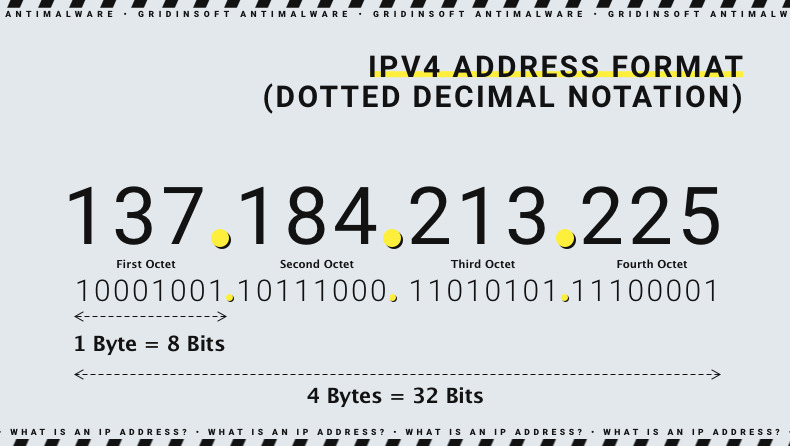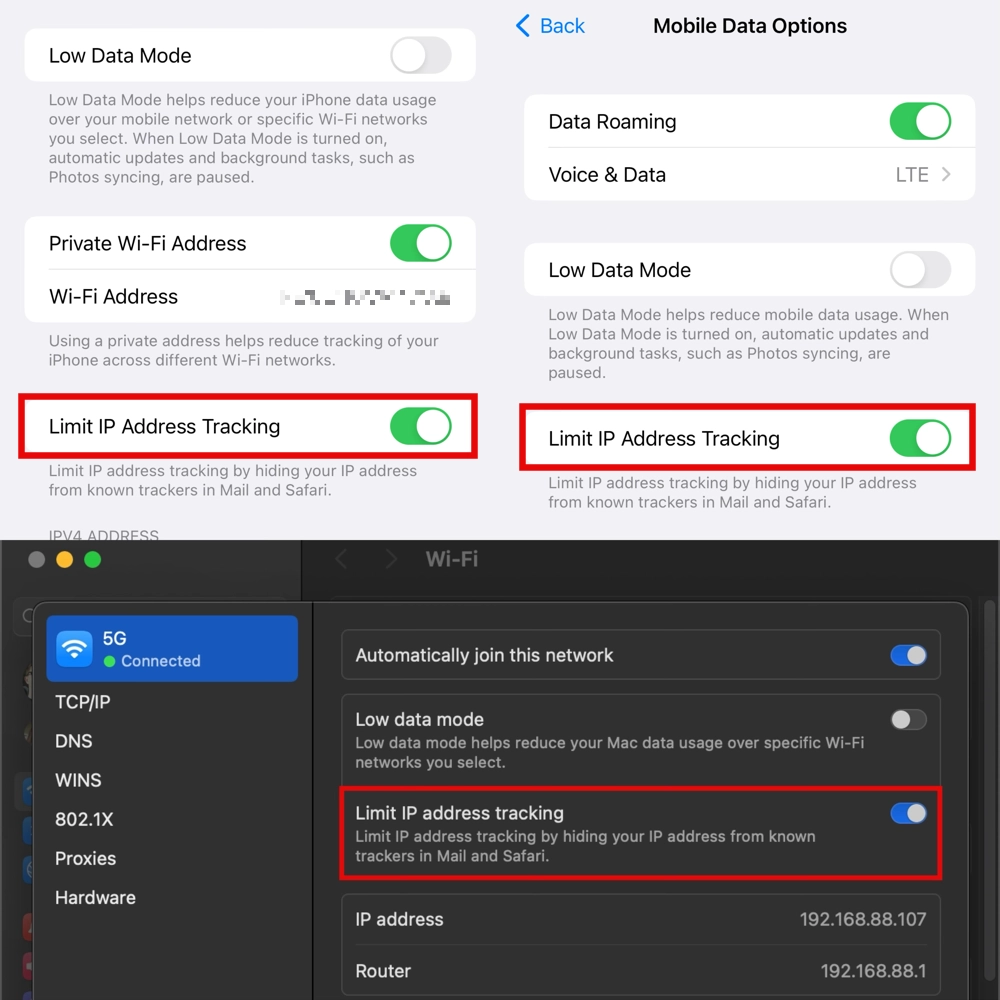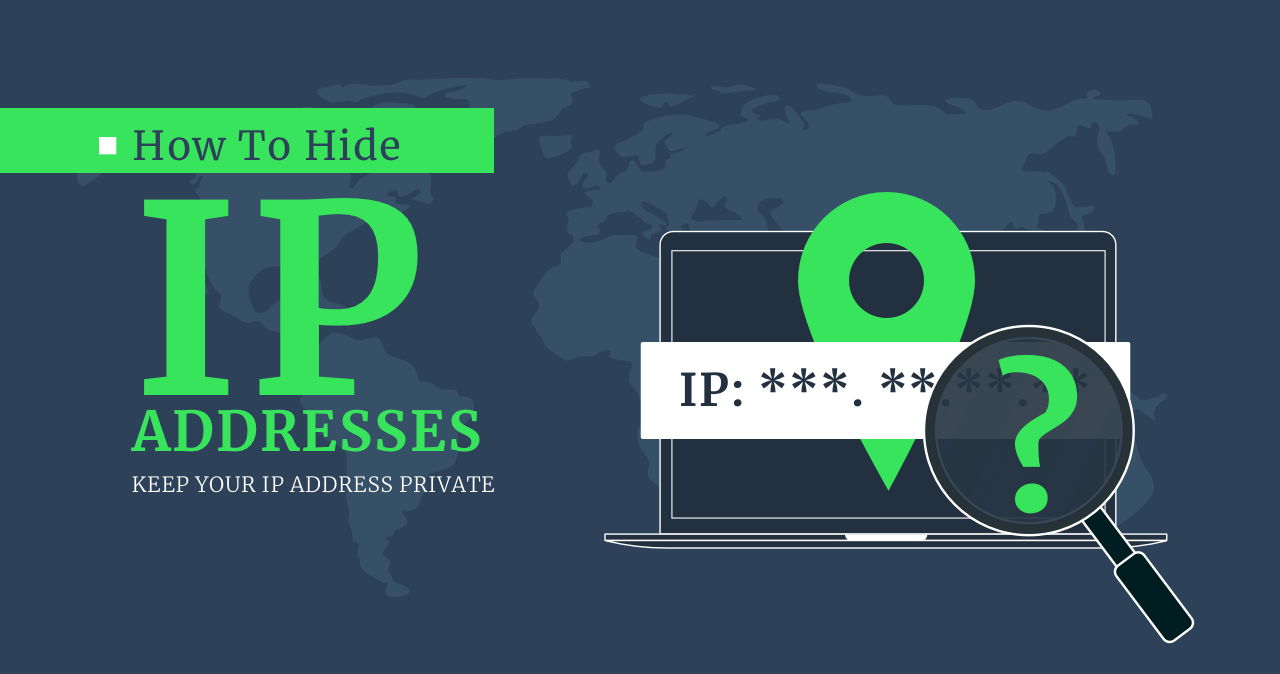Users may want to hide IP address for different reasons: privacy, accessing content, masquerading, and so on. But it happens to be challenging to accomplish, as the number of tools and complexity of some of them may overwhelm even a tech-savvy user. Let me go through each step of IP hiding and show you, how to do it properly.
Why Would I Want To Hide My IP Address?
As digitalization progresses, people are increasingly concerned about online privacy. Today, user data is precious, and IP addresses are a significant part of this data, leading many to try to conceal them.

While an IP address doesn’t contain personal information by itself, it can be used to gather data about your online behavior, geographic location, and other aspects of your online activity. Marketers are particularly interested in your IP address because it allows them to display region-specific advertisements. Hiding your IP address can help prevent websites, advertisers, and other organizations from tracking your online activities.
Cybercriminals are another kind interested in your IP address. Having someone’s IP address can be more than just a joke, as an IP address can reveal your approximate location (at least the city or area). Furthermore, a skilled cybercriminal can use advanced tools to discover your actual physical address. Knowing your IP address also enables attackers to look for vulnerabilities and attack your device.
Besides external threats, there are instances where users themselves need to hide their IP addresses. Often, this happens to circumnavigate geographic restrictions. For example, some content may be unavailable in certain countries. In other cases, users in countries that do not uphold freedom of speech may be persecuted for expressing opinions unfavorable to the government. In such situations, hiding an IP address can be a matter of personal safety.
Ways To Hide Your IP Address
There are several ways to hide your real IP address. These methods differ in how they work, how they are implemented as well as their effectiveness. For example, some may only hide your IP address, while others also offer encrypting the connection. Let’s review them one by one.
VPN
The most popular method to hide IP addresses is to use a VPN. A Virtual Private Network is a software service that, in addition to hiding your IP address, encrypts all traffic between your device and the endpoint by routing it through an intermediary server. This acts like a tunnel that hides the origin IP from third parties on the Internet.
However, there are some downsides. Firstly, due to the technical aspects, using a VPN can significantly reduce data transfer speeds. This is especially true for free VPNs.
The second potential issue is privacy. Since VPN providers have access to the data passing through their service, their default policy should be not to log any data about users’ internet activity. However, there have been instances where unscrupulous VPN providers have logged users’ internet activity and sold it to third parties.
For that reason, setting up your own VPN network may be an option. It will require another system (or a server) and just a bit of tinkering with setup. By connecting to it, you get the same effect as if you were using the normal VPN, but lacking all the privacy concerns.
Using the TOR Browser
The Onion Router (TOR) is a web browser designed for maximum anonymity. Like an onion, it has multiple “layers” of encryption under which the real IP address is hidden. Although it is a completely legal browser and freely available for download, it is the only way to access the Dark Web, which criminals often use.
Like the previous method, TOR has its drawbacks. The main disadvantage is its speed—it is significantly slower than other browsers. Additionally, as I mentioned earlier, it is the only way to access the Darknet. While TOR hides your IP address, ISPs can detect TOR usage. As a result, in some cases, using TOR might attract the attention of law enforcement agencies.
Use Mobile Data
By using cellular connection, you get a new IP address whenever you connect to a network. This solution does not completely hide your address, but changes it instead, so the real one is not visible. Still, it can be helpful in some instances, for example when you were blocked by IP. An alternative cell connection is using a public WiFi network. This will change your IP address, too, though using public WiFi networks has its risks.
Using a Proxy Server
A proxy server is an intermediary web server that hides your IP address. However, unlike a VPN, a proxy server does not encrypt the transmitted data. It only assigns a new identifier to the packets passing through it. There are regular proxies, which hide your IP address from the endpoint and reverse proxies, which hide the endpoint’s address from you.
Use Build-in Anti-tracking Tools
Recently, gadget makers have been integrating native anti-tracking features. Some functions are available as a paid subscription option, while others work out of the box. For instance, Apple devices have a built-in feature called “Limit IP address tracking,” which, as the name suggests, restricts the tracking of your IP address. I recommend using this feature.





